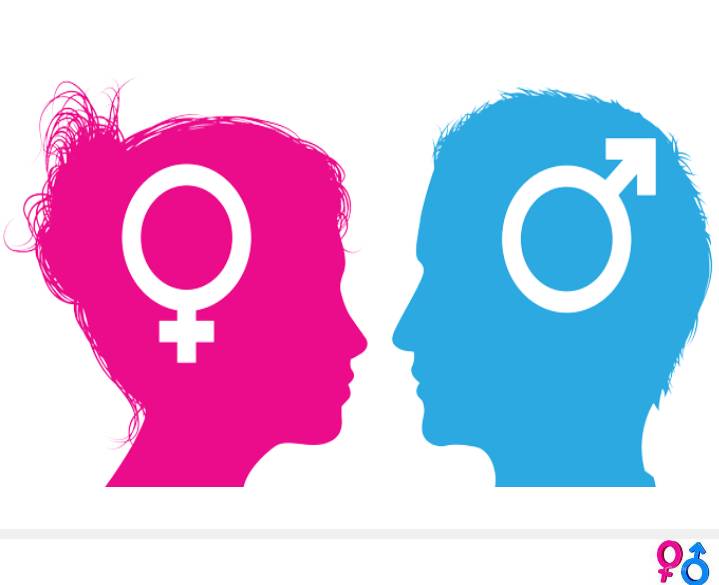First of all, what is gender?
Unlike sex, which is a biological concept, i.e how you were born.either male or female, gender is a social construct specifying the socially and culturally prescribed ideas about the behaviour, actions, and roles a particular sex performs and follows. Gender is “the costume, a mask, a straitjacket in which men and women dance their unequal dance”. ~Gerda Lerner
Sex is definite, gender is fluid and constructed/negotiated. That is why we have Asexuals, queers, transgenders and the like.
Here are some terms I think you would find interesting studied in gender.
¶ Understanding the concept of gender equality, gender equity and gender inequality
Most people think these three concepts are the same but they're not....
Gender equality is the concept that all human beings both men and women, are free to develop their personal abilities and make choices without stereotypes, rigid gender roles and prejudices (UNESCO, 2000)
But Gender equity Is fairness of treatment for women and men according to their respective needs. Tis may include treatment that is different but considered equal in rights, benefits, obligations and opportunities.
Equity leads to equality.
And Gender inequality is the social phenomenon in which men and women are not treated equally. The treatment may arise from distinctions regarding biology, psychology, or cultural norms prevalent in the society. Some of these distinctions are empirically grounded, while others appear to be social constructs.
¶ Gender relations
Gender relations are the ways in which a culture or society defines rights, responsibilities, and the identities of men and women in relation to one another (Bravo-Baumann, 2000). Gender relations are reinforced by socialisation. Socialisation institutions (family, church, school, media, work, etc.)
Elements of gender relations
Division of labour Productive and reproductive roles
Male roles and responsibilities valued more than women’s
Women roles and responsibilities undervalued
Control of resources (land, power, labour, education, training, etc.)
Gender ideologies (socialization, changing, etc.)
Gender myths and stereotypes (“women are their own enemies,” victim blaming, e.g. in rape, women are gossips, women are weaker sex, men are cheats, men are liars, ).
Gender relations basically defines how males and females should go about their daily activities in life. Well at least that's according to "society". In my opinion.
Now let's talk about patriarchy in gender.
¶ Patriarchy is a social system in which the role of the male as the primary authority figure is central to social organisation and where fathers hold authority over women, children, other men and property. It implies the institutions of male rule and privilege and is dependent on female subordination. Historically, patriarchy has manifested itself in the social, legal, political and economic organisation of a range of different cultures and also influences modern civilisation. In modern times societies and institutions are described as patriarchal when they have features of patriarchies. Matrilineal inheritance systems do not disrupt patriarchy.
¶ Masculinity or as I like to call it, toxic masculinity.
The term masculinity signifies a collective gender identity and not a natural attribute. It is socially constructed, fluid, resulting in diverse forms across different times and context, and mediated by socio-economic position, race, ethnicity, religion, age, geographic location and other local factors (Adomako Ampofo and Boateng 2007; Ratele 2002; Connell1998; Morrell, 1998a;).It is subject to change. Masculinity defines how boys should behave, be treated, dress, appear, what they should succeed at, and what attitudes and qualities they should have (Bhasin, 2004)
And there's ¶Hegemonic masculinity is a dominant form of masculinity in a society and pertains to the relations of cultural domination by men. In addition to being oppressive to women, it silences other masculinities. They present a version of how ‘real men’ should behave and men who are unable to live up to such prescriptions are ridiculed Eg: “Kwadwo Basia” (lit: male with perceived feminine features and attitudes). In order to sustain itself, hegemonic masculinity is constantly on the ‘look out’ for threats against the status quo-to adjusts the balance of power to keep situation under control (Dipio, 2010). In some cases, masculinity can become precarious and susceptible to subversion because of its extraction from flawed depictions of femininity.
Why is gender an important issues in the African society?
Socio-Cultural Factors we need to completely get rid of;
•Social construction of society (we will build our society like that)
•Discriminatory cultural practices
•Discriminatory inheritance practices
•Marriage (polygamy, rights and duties in marriage, widowhood rites, wife inheritance)
•Family and community life (chores, decision-making, seclusion, stereotypes, role expectations
•Reproductive health (decisions on family planning, sexuality, pro-natalism)
•Important for social relations (gender, class, kinship, etc.)
•Social relations determine roles, positions, privileges and power.
•As well as gender relations




No comments yet
Be the first to share your thoughts!